![]()
![]()
![]()
Use LEFT and RIGHT arrow keys to navigate between flashcards;
Use UP and DOWN arrow keys to flip the card;
H to show hint;
A reads text to speech;
75 Cards in this Set
- Front
- Back

Whiskey Rebellion
|
The Whiskey Rebellion, or Whiskey Insurrection, was a tax protest in the United States beginning in 1791, during the presidency of George Washington. Farmers who used their leftover grain and corn in the form of whiskey as a medium of exchange were forced to pay a new tax. The tax was a part of treasury secretary Alexander Hamilton's program to increase central government power, in particular to fund his policy of assuming the war debt of those states which had failed to pay.
|
|
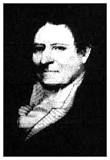
Citizen Genet
|
Edmond-Charles Genêt, also known as Citizen Genêt, was a French ambassador to the United States during the French Revolution.
|
|
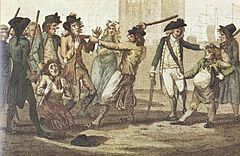
Impressment
|
Impressment, colloquially, "the Press" or the "Press gang", refers to the act of taking men into a navy by force and with or without notice. It was used by the Royal Navy, beginning in 1664 and during the 18th and early 19th centuries, in wartime, as a means of crewing warships, although legal sanction for the practice goes back to the time of Edward I of England. The Royal Navy impressed many merchant sailors, as well as some sailors from other nations. People liable to impressment were "eligible men of seafaring habits between the ages of 18 and 45 years". Non-seamen were impressed as well, though rarely.
|
|
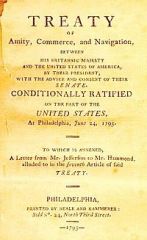
Jay's Treaty
|
The Treaty of Amity, Commerce, and Navigation, Between His Britannic Majesty and The United States of America, commonly known as the Jay Treaty, and also as Jay's Treaty, the British Treaty, and the Treaty of London of 1794, was a treaty between the United States of America and the Kingdom of Great Britain that is credited with averting war, resolving issues remaining since the Treaty of Paris of 1783, which ended the American Revolution, and facilitating ten years of peaceful trade between the United States and Britain in the midst of the French Revolutionary Wars, which began in 1792.
|
|
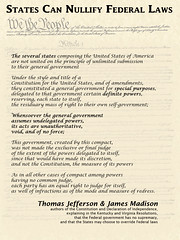
Nullification
|
Nullification, in United States constitutional history, is a legal theory that a state has the right to nullify, or invalidate, any federal law which that state has deemed unconstitutional. The theory of nullification has been rejected repeatedly by the courts, and it has never been legally upheld.
|
|
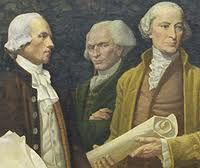
Federalist and Republicans
|
The nation’s first political parties developed gradually and to the surprise of almost everyone in public life in the 1790s. Within a few years of the inauguration of the federal government in 1789, officeholders faced persistent divisions over questions about the proper extent of the new government’s authority. The debates over the establishment of the Bank of the United States in 1791 revealed sharply different ideas about the balance of state and national power. The recurring diplomatic crises associated with European wars emphasized the divisive political implications of alliances with European powers.
|
|
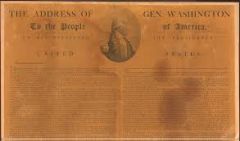
Washington's Farewell Address
|
The period for a new election of a citizen to administer the executive government of the United States being not far distant, and the time actually arrived when your thoughts must be employed in designating the person who is to be clothed with that important trust, it appears to me proper, especially as it may conduce to a more distinct expression of the public voice, that I should now apprise you of the resolution I have formed, to decline being considered among the number of those out of whom a choice is to be made.
|
|

Neutrality Proclamation of 1793
|
The Proclamation of Neutrality was a formal announcement issued by United States President George Washington on April 22, 1793, declaring the nation neutral in the conflict between France and Great Britain. It threatened legal proceedings against any American providing assistance to any country at war.
|
|
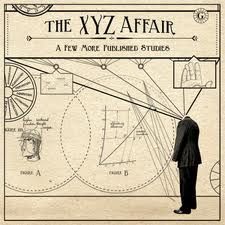
XYZ Affair
|
The XYZ Affair was a political and diplomatic episode in 1797 and 1798, early in the administration of John Adams, involving the United States and Republican France. Its name derives from the substitution of the letters X, Y and Z for the names of French diplomats in documents released by the Adams administration.
|
|
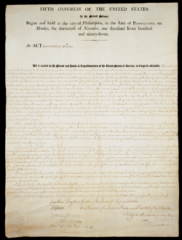
Alien and sedition Acts
|
The Alien and Sedition Acts were four bills passed in 1798 by the Federalists in the 5th United States Congress in the aftermath of the French Revolution and during an undeclared naval war with France, later known as the Quasi-War. They were signed into law by President John Adams. The Sedition Act and the Alien Friends Act were allowed to expire in 1800 and 1801, respectively. The Naturalization Act was repealed in 1802. The Alien Enemies Act remains in effect as 50 USC Sections 21–24.
|
|
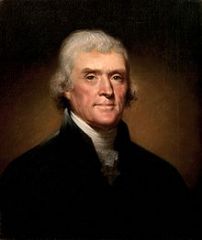
Virginia and Kentucky Resolution
|
The Kentucky and Virginia Resolutions (or Resolves) were political statements drafted in 1798 and 1799, in which the Kentucky and Virginia legislatures took the position that the federal Alien and Sedition Acts were unconstitutional. The resolutions argued that the states had the right and the duty to declare unconstitutional any acts of Congress that were not authorized by the Constitution. In doing so, they argued for states' rights and strict constructionism of the Constitution. The Kentucky and Virginia Resolutions of 1798 were written secretly by Vice President Thomas Jefferson and James Madison, respectively.
|
|
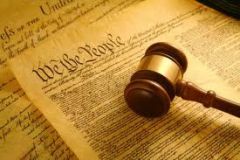
twelfth Amendment
|
The Twelfth Amendment (Amendment XII) to the United States Constitution provides the procedure for electing the President and Vice President. It replaced Article II, Section 1, Clause 3, which provided the original procedure by which the Electoral College functioned. Problems with the original procedure arose in the elections of 1796 and 1800. The Twelfth Amendment was proposed by the Congress on December 9, 1803, and was ratified by the required number of state legislatures on June 15, 1804.
|
|
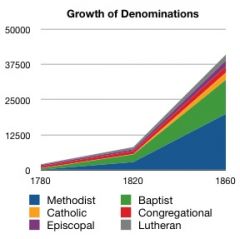
Second Great Awakening
|
The Second Great Awakening was a Protestant revival movement during the early 19th century in the United States. The movement began around 1790, gained momentum by 1800, and after 1820 membership rose rapidly among Baptist and Methodist congregations whose preachers led the movement. It was past its peak by the 1840s. It has been described as a reaction against skepticism, deism, and rational Christianity, although why those forces became pressing enough at the time to spark revivals is not fully understood.
|
|
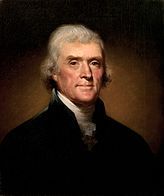
Election of 1800
|
The United States Presidential election of 1800 was the 4th quadrennial presidential election. It was held from Friday, October 31 to Wednesday, December 3, 1800. In what is sometimes referred to as the "Revolution of 1800," Thomas Jefferson defeated John Adams. The election was a realigning election that ushered in a generation of Democratic-Republican Party rule and the eventual demise of the Federalist Party in the First Party System.
|
|
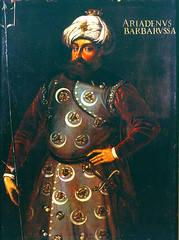
Barbary Pirates
|
The Barbary pirates, sometimes called Barbary corsairs or Ottoman corsairs, were pirates and privateers who operated from North Africa, based primarily in the ports of Algiers, Tunis and Tripoli. This area was known in Europe as the Barbary Coast, a term derived from the name of its Berber inhabitants. Their predation extended throughout the Mediterranean, south along West Africa's Atlantic seaboard and even South America, and into the North Atlantic as far north as Iceland, but they primarily operated in the western Mediterranean.
|
|
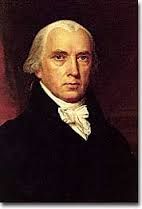
Midnight Judges
|
The Midnight Judges Act (also known as the Judiciary Act of 1801. 89, or the Midnight Appointments) represented an effort to solve an issue in the U.S. Supreme Court during the early 19th century. There was concern, beginning in 1789, about the system that required the justices of the Supreme Court to “ride circuit” and reiterate decisions made in the appellate level courts. The Supreme Court justices had often voiced concern and suggested that the judges of the Supreme and circuit courts be divided.
|
|
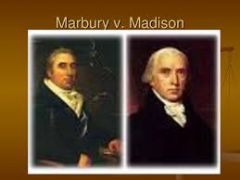
Marbury V. Madison
|
Marbury v. Madison, 5 U.S. 137 (1803), was a landmark United States Supreme Court case in which the Court formed the basis for the exercise of judicial review in the United States under Article III of the Constitution. The landmark decision helped define the boundary between the constitutionally separate executive and judicial branches of the American form of government.
|
|
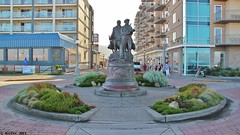
Lewis and Clark Expidition
|
The Lewis and Clark Expedition, also known as the Corps of Discovery Expedition, was the first American expedition to cross what is now the western portion of the United States, departing in May, 1804 from St. Louis on the Mississippi River, making their way westward through the continental divide to the Pacific coast.
|
|
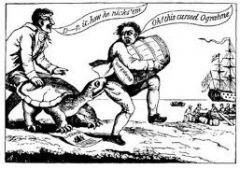
Non intercourse act
|
The Nonintercourse Act (also known as the Indian Intercourse Act or the Indian Nonintercourse Act) is the collective name given to six statutes passed by the United States Congress in 1790, 1793, 1796, 1799, 1802, and 1834. The Act regulates commerce between Native Americans and non-Indians. The most notable provisions of the Act regulate the inalienability of aboriginal title in the United States, a continuing source of litigation for almost 200 years. The prohibition on purchases of Indian lands without the approval of the federal government has its origins in the Royal Proclamation of 1763 and the Confederation Congress Proclamation of 1783.
|
|
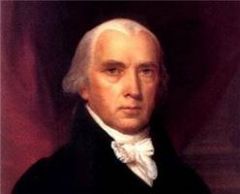
Macon's bill No. 2
|
Macon's Bill Number 2,[1] which became law in the United States on May 14, 1810, was intended to motivate Britain and France to stop seizing American vessels during the Napoleonic Wars. This bill was for the British to stop stealing from the Americans and keep them out of the United States. This bill was a revision of the original bill by Representative Nathaniel Macon, known as Macon's Bill Number 1. The law lifted all embargoes with Britain and France (for three months). If either one of the two countries ceased attacks upon American shipping, the United States would end trade with the other, unless that other country agreed to recognize the rights of the neutral American ships as well.
|
|
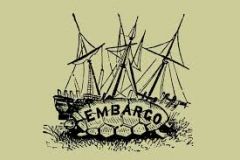
Embargo Act
|
The Embargo Act of 1807 was a general embargo enacted by the United States Congress against Great Britain and France during the Napoleonic Wars.
The embargo was imposed in response to violations of U.S. neutrality, in which American merchantmen and their cargo were seized as contraband of war by the European navies. The British Royal Navy, in particular, resorted to impressment, forcing thousands of American seamen into service on their warships. Great Britain and France, engaged in a struggle for control of Europe, rationalized the plunder of U.S. shipping as incidental to war and necessary for their survival. Americans saw the Chesapeake-Leopard Affair as a particularly egregious example of a British violation of American neutrality. Perceived diplomatic insults and unwarranted official orders issued in support of these actions by European powers were widely recognized as grounds for a U.S. declaration of war. Irate citizens cynically transposed the letters of “Embargo” to read “O Grab Me. |
|
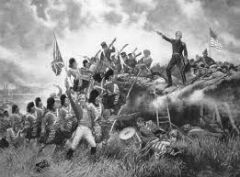
War Hawks
|
A war hawk, or simply hawk for short, is a term used in politics for someone favoring war in a debate over whether to go to war, or whether to continue or escalate an existing war. War hawks are the opposite of war doves. The terms are derived through analogy with the birds of the same name: hawks are predators which attack and feed on other animals, whereas doves mostly eat seeds and fruit, and are historically a symbol of peace.
|
|
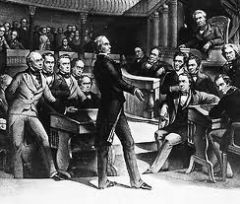
Henry Clay and the Ameriacn System
|
The American System, originally called "The American Way", was an economic plan that played a prominent role in American policy during the first half of the 19th century. Rooted in the "American School" ideas of Alexander Hamilton, the plan "consisted of three mutually reinforcing parts: a tariff to protect and promote American industry; a national bank to foster commerce; and federal subsidies for roads, canals, and other 'internal improvements' to develop profitable markets for agriculture.
|
|
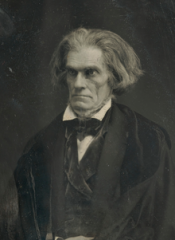
John C. Calhoun
|
John Caldwell Calhoun (March 18, 1782 – March 31, 1850) was a leading American politician and political theorist from South Carolina during the first half of the 19th century. Calhoun began his political career as a nationalist, modernizer, and proponent of a strong national government and protective tariffs. After 1830, his views evolved and he became a greater proponent of states' rights, limited government, nullification and free trade; as he saw these means as the only way to preserve the Union. He is best known for his intense and original defense of slavery as something positive, his distrust of majoritarianism, and for pointing the South toward secession from the Union.
|
|
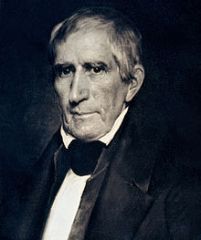
William Henry Harrison
|
William Henry Harrison (February 9, 1773 – April 4, 1841) was the ninth President of the United States (1841), an American military officer and politician, and the first president to die in office. He was 68 years, 23 days old when inaugurated, the oldest president to take office until Ronald Reagan in 1981, and last President to be born before the United States Declaration of Independence. Harrison died on his 32nd day in office[a] of complications from pneumonia, serving the shortest tenure in United States presidential history. His death sparked a brief constitutional crisis, but that crisis ultimately resolved many questions about presidential succession left unanswered by the Constitution until passage of the 25th Amendment.
|
|
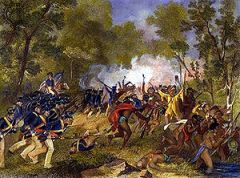
Battle of Tippecanoe
|
The Battle of Tippecanoe was fought on November 7, 1811, between United States forces led by Governor William Henry Harrison of the Indiana Territory and Native American warriors associated with the Shawnee leader Tecumseh. Tecumseh and his brother Tenskwatawa (commonly known as "The Prophet") were leaders of a confederacy of Native Americans from various tribes that opposed U.S. expansion into Native territory. As tensions and violence increased, Governor Harrison marched with an army of about 1,000 men to disperse the confederacy's headquarters at Prophetstown, near the confluence of the Tippecanoe and Wabash Rivers.
|
|
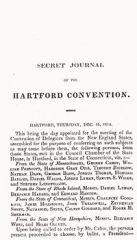
Hartford convention
|
The Hartford Convention was an event in 1814–1815 in Hartford, Connecticut, United States, in which New England Federalists met to discuss their grievances concerning the ongoing War of 1812 and the political problems arising from the federal government's increasing power. Despite radical outcries among Federalists for New England secession and a separate peace with Great Britain, moderates outnumbered them and extreme proposals were not a major focus of the debate.
|
|
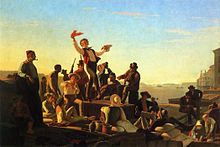
Era of good feelings
|
The Era of Good Feelings marked a period in the political history of the United States that reflected a sense of national purpose and a desire for unity among Americans in the aftermath of the Napoleonic Wars. The era saw the collapse of the Federalist Party and an end to the bitter partisan disputes between it and the dominant Democratic-Republican Party during the First Party System.
|
|
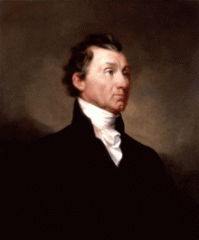
James Monroe
|
James Monroe (April 28, 1758 – July 4, 1831) was the fifth President of the United States (1817–1825). Monroe was the last president who was a Founding Father of the United States, the third of them to die on Independence Day, and the last president from the Virginia dynasty and the Republican Generation.
|
|
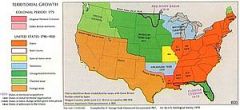
Missouri compromise
|
The Missouri Compromise was passed in 1820 between the pro-slavery and anti-slavery factions in the United States Congress, involving primarily the regulation of slavery in the western territories. It prohibited slavery in the former Louisiana Territory north of the parallel 36°30′ north except within the boundaries of the proposed state of Missouri.
|
|
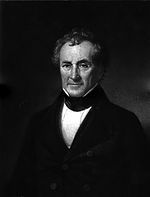
Talllmadge Amendment
|
The Tallmadge Amendment was a proposed amendment to a bill requesting the Territory of Missouri to be admitted to the Union as a state. This amendment was submitted on February 13, 1819, by James Tallmadge,Jr., a democrat from New York. In response to the debate in Congress regarding the admission of Missouri as a state and its affect on the existing even balance of slave and free states, Tallmadge, an opponent of slavery, sought to impose conditions on Missouri that would extinguish slavery within a generation.
|
|
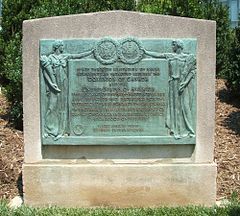
Rush-Bagot Treaty
|
The Rush–Bagot Treaty or "Rush-Bagot Disarmament", was a treaty between the United States and Britain limiting naval armaments on the Great Lakes and Lake Champlain, following the War of 1812. It was ratified by the United States Senate on April 16, 1818. and has been confirmed by Canada, following Confederation in 1867. The treaty provided for a large demilitarization of lakes along the international boundary, where many British naval arrangements and forts remained.
|
|
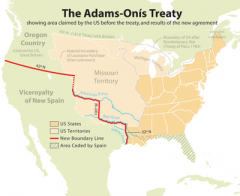
Adams-Onis Treaty
|
The Adams–Onís Treaty of 1819, also known as the Transcontinental Treaty or the Purchase of Florida, or the Florida Treaty, was a treaty between the United States and Spain in 1819 that gave Florida to the U.S. and set out a boundary between the U.S. and New Spain (now Mexico).
|
|
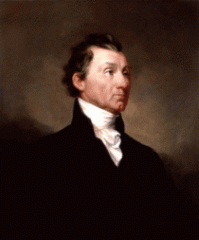
Monroe Doctrine
|
The Monroe Doctrine was a policy of the United States introduced on December 2, 1823. It stated that further efforts by European nations to colonize land or interfere with states in North or South America would be viewed as acts of aggression, requiring U.S. intervention.
|
|
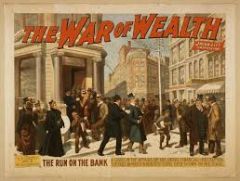
Panic of 1819
|
The Panic of 1819 was the first major peacetime financial crisis in the United States followed by a general collapse of the American economy persisting through 1821. The Panic announced the transition of the nation from its colonial commercial status with Europe toward a dynamic economy, increasingly characterized by the financial and industrial imperatives of laisser-faire capitalism and susceptible to boom and bust cycles.
|
|
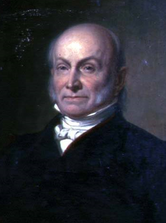
Election of 1824
|
The United States presidential election of 1824 was the 10th quadrennial presidential election, held from Tuesday, October 26, to Thursday, December 2, 1824. John Quincy Adams was elected President on February 9, 1825, after the election was decided by the House of Representatives in what was termed the Corrupt Bargain. The previous years had seen a one-party government in the United States, as the Federalist Party dissolved, leaving only the Democratic-Republican Party as a national political entity.
|
|
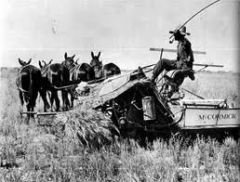
Tariff of Abominations
|
he Tariff of 1828 was a protective tariff passed by the Congress of the United States on May 19, 1828, designed to protect industry in the northern United States. It was labeled the Tariff of Abominations by its southern detractors because of the effects it had on the antebellum Southern economy.
|
|
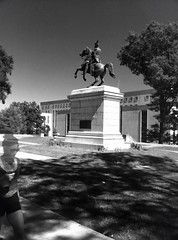
Andrew Jackson
|
Andrew Jackson (March 15, 1767 – June 8, 1845) was the seventh President of the United States (1829–1837). Based in frontier Tennessee, Jackson was a politician and army general who defeated the Creek Indians at the Battle of Horseshoe Bend (1814), and the British at the Battle of New Orleans (1815). A polarizing figure who dominated the Second Party System in the 1820s and 1830s, as president he dismantled the Second Bank of the United States and initiated forced relocation and resettlement of Native American tribes from the Southeast to west of the Mississippi River. His enthusiastic followers created the modern Democratic Party. The 1830–1850 period later became known as the era of Jacksonian democracy.
|
|
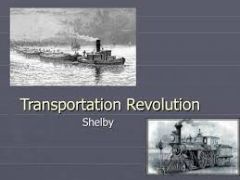
Transportation Revolution
|
The transportation revolution was the period in which steam power, railroads, canals, roads, bridges, and clipper ships emerged as new forms of transportation, beginning in the 1830s.
|
|

Erie Canal
|
An artificial waterway connecting the Hudson river at Albany with Lake Erie at Buffalo; built in the 19th century; now part of the New York State Barge Canal
|
|

National Road
|
The National Road or Cumberland Road was one of the first major improved highways in the United States to be built by the federal government. Construction began in 1811 at Cumberland, Maryland, on the Potomac River.
|
|
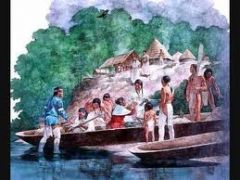
Indian Removal Act
|
The Indian Removal Act, part of a United States government policy known as Indian removal, was signed into law by President Andrew Jackson on May 26, 1830.The U.S. Senate passed the bill on 24 April 1830 (19), the U.S.
|
|
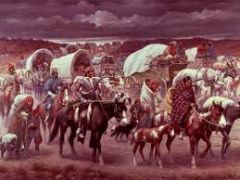
Trails of Tears
|
The Trail of Tears was the forcible relocation and movement of Native Americans, including many members of the Cherokee, Creek, Seminole, and Choctaw nations among others in the United States, from their homelands to Indian Territory (present day Oklahoma) in the Western United States
|
|
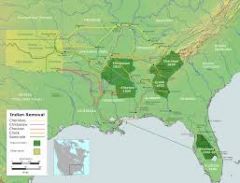
Cherokee Nation v. Georgia
|
Cherokee Nation v. Georgia, , was a United States Supreme Court case.
|
|
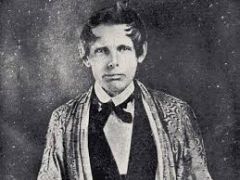
Worcester v. Georgia
|
Worcester v. Georgia, 31 U.S. (6 Pet.) 515 (1832), was a case in which the United States Supreme Court held that Cherokee Native Americans were entitled to federal protection from the actions of state governments which would infringe on the tribe's sovereignty.
|
|
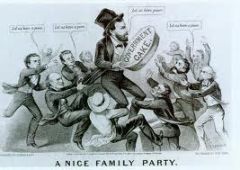
Spoils System
|
the practice of a successful political party giving public office to its supporters.
|
|

Kitchen Cabinet
|
a group of unofficial advisers to the holder of an elected office who are considered to be unduly influential.
|
|

Lowell Mill/System
|
The precursor to the Waltham-Lowell system was seen in Rhode Island, where British immigrant Samuel Slater set up his first spinning mills in the 1790s.
|
|

Cotton Gin
|
a machine for separating cotton from its seeds.
|
|
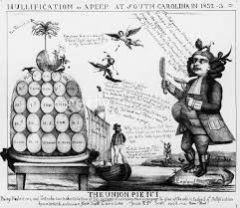
Nullification Controversy
|
The Nullification Crisis arose in the early 1830s when leaders of South Carolina advanced the idea that a state did not have to follow a federal law and could, in effect, "nullify" the law.
|
|
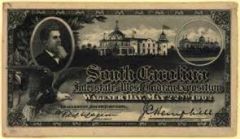
South Carolina Exposition
|
The South Carolina Exposition and Protest, also known as Calhoun's Exposition, was written in December 1828 by John C. Calhoun, then vice president under John Quincy Adams and later under Andrew Jackson. Calhoun did not formally state his authorship at the time, though it was known.
|
|
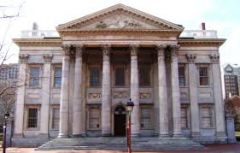
Bank of the United States
|
Secretary of the Treasury Alexander Hamilton's concept of a central bank grew out of his belief that the government needed a repository for federal funds and an entity to act as its fiscal agent.
|
|
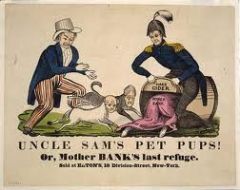
Pet Banks
|
Pet banks''' is a degrading term for state banks selected by the U.S. Department of Treasury to receive surplus government funds in 1833. They were made among the big U.S.
|
|
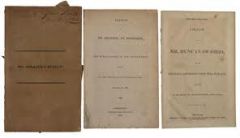
Independent Treasury Bill
|
The Independent Treasury was a system for the retaining of government funds in the United States Treasury and its subtreasuries, independently of the national banking and financial systems. In one form or another, it existed from 1846 to 1921.
|
|
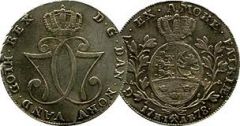
Specie
|
Money in the form of coins rather than notes.
|
|
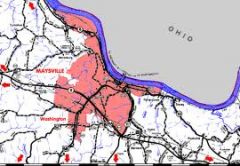
Maysville Road Veto
|
The Maysville Road veto occurred on May 27, 1830, when President Andrew Jackson vetoed a bill which would allow the Federal government to purchase stock in the Maysville, Washington, Paris, and Lexington Turnpike Road Company, which had been organized to construct a road linking Lexington, KY. and Maysville, KY., on the Ohio River, the entirety of which would be in the state of Kentucky. Its advocates regarded it as a part of the national Cumberland Road system.
|
|
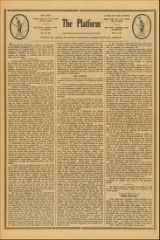
Liberty Party
|
a former political party in the United States; formed in 1839 to oppose the practice of slavery; merged with the Free Soil Party in 1848
|
|
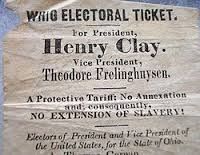
Whig Party
|
a former political party in the United States; formed in 1834 in opposition to the Democratic Party; advocated a loose interpretation of the Constitution and high protective tariffs
|
|
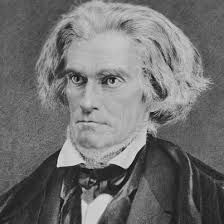
John C. Calhoun
|
John Caldwell Calhoun (March 18, 1782 – March 31, 1850) was the seventh Vice President of the United States and a leading Southern politician from South Carolina during the first half of the 19th century.
|
|
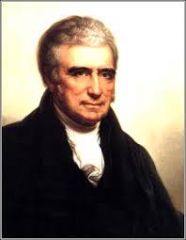
Marshall Court
|
John Marshall (September 24, 1755 – July 6, 1835) was an American jurist and statesman who shaped American constitutional law and made the Supreme Court a center of power. Marshall was Chief Justice of the United States, serving from January 31, 1801, until his death in 1835.
|
|
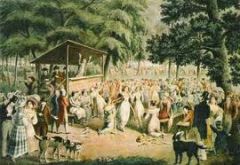
Second Great Awakening
|
The Second Great Awakening was a religious revival movement during the early 19th century in the United States, which expressed Arminian theology by which every person could be saved through revivals. It enrolled millions of new members, and led to the formation of new denominations.
|
|
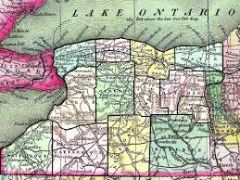
Burned Over District
|
"Burned-over district" refers to the religious scene in upstate New York in the early 19th century, which was repeatedly "burned over" by religious revivals of the Second Great Awakening .
|
|
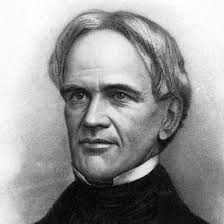
Horace Mann
|
Mann: United States educator who introduced reforms that significantly altered the system of public education (1796-1859)
|
|
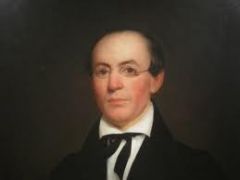
William Lloyd
|
William Lloyd may refer to: *William Watkiss Lloyd (1813–1893), writer *William Lloyd (councillor) (born 1988), Conservative councillor *William Lloyd (bishop) (1627–1717), Bishop of St Asaph, of Lichfield and Coventry and of Worcester *William Lloyd (cleric) (1771–1841),
|
|
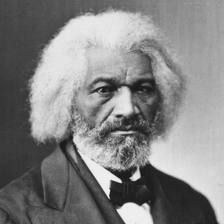
Fredrick Douglass
|
Douglass: United States abolitionist who escaped from slavery and became an influential writer and lecturer in the North (1817-1895)
|
|
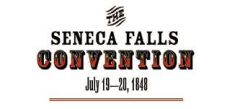
Seneca Falls Convention of 1848
|
a women's rights convention held at Seneca Falls, New York, in 1848, organized by Elizabeth Cady Stanton and Lucretia Mott.
|
|
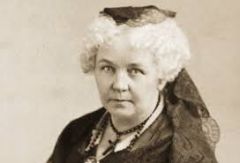
Elizabeth cady Stanton
|
Stanton: United States suffragist and feminist; called for reform of the practices that perpetuated sexual inequality (1815-1902)
|
|
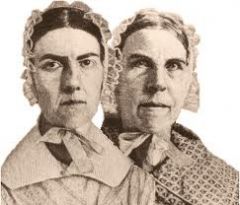
Angelina and Sarah Grimke
|
Sarah Moore Grimké (1792–1873) and Angelina Emily Grimké (1805–1879), known as the Grimké sisters, were 19th-century Southern American Quakers,
|
|
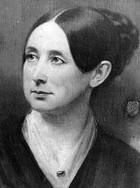
Dorothea Dix
|
Dix: United States social reformer who pioneered in the reform of prisons and in the treatment of the mentally ill; superintended women army nurses during the American Civil War (1802-1887)
|
|
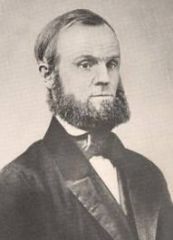
John Humphrey Noyes
|
John Humphrey Noyes (September 3, 1811 - April 13, 1886) was an American utopian socialist. He founded the Oneida Community in 1848. He coined the term "free love".
|
|
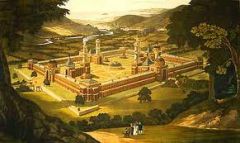
New Harmony
|
The American Elm Ulmus americana cultivar 'New Harmony' was raised by the Maryland Agricultural Research Service and released by the United States National Arboretum in 1995, along with 'Valley Forge'.
|
|
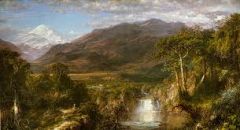
Hudson River School
|
the first coherent school of American art; active from 1825 to 1870; painted wilderness landscapes of the Hudson River valley and surrounding New England
|
|
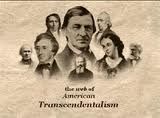
Transcendentalism
|
a system developed by Immanuel Kant, based on the idea that, in order to understand the nature of reality, one must first examine and analyze the reasoning process that governs the nature of experience.
|
|
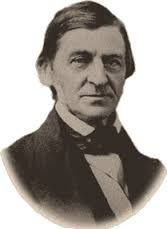
Ralph Waldo Emerson
|
Emerson: United States writer and leading exponent of transcendentalism (1803-1882)
|
|
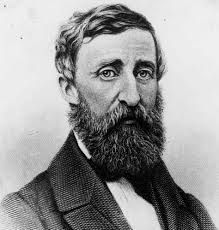
Henry David Thoreau
|
Thoreau: United States writer and social critic (1817-1862)
|

